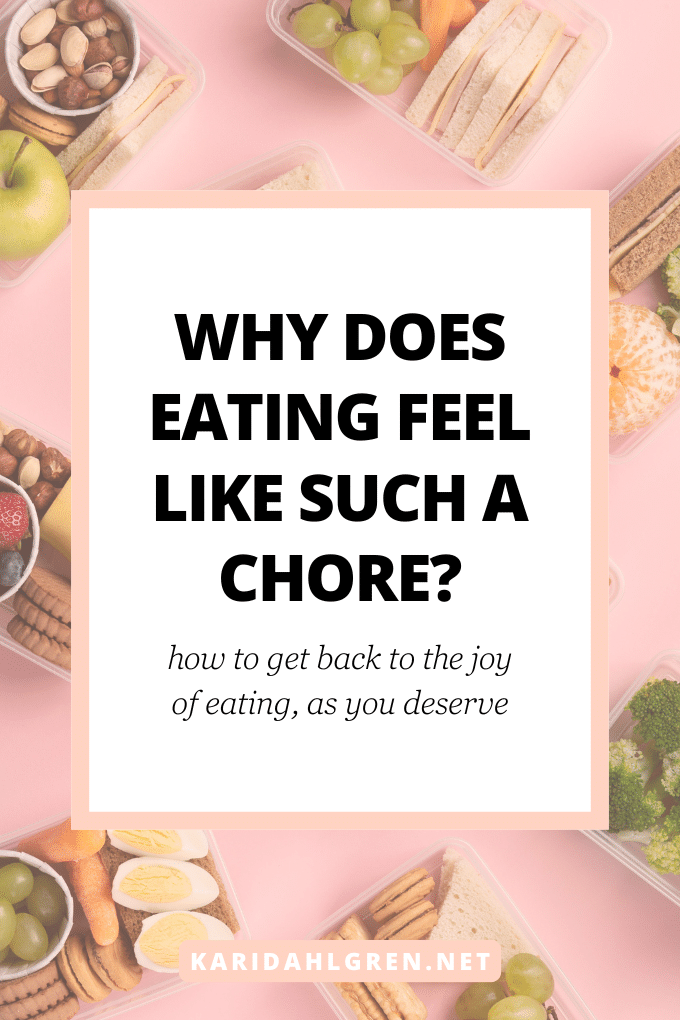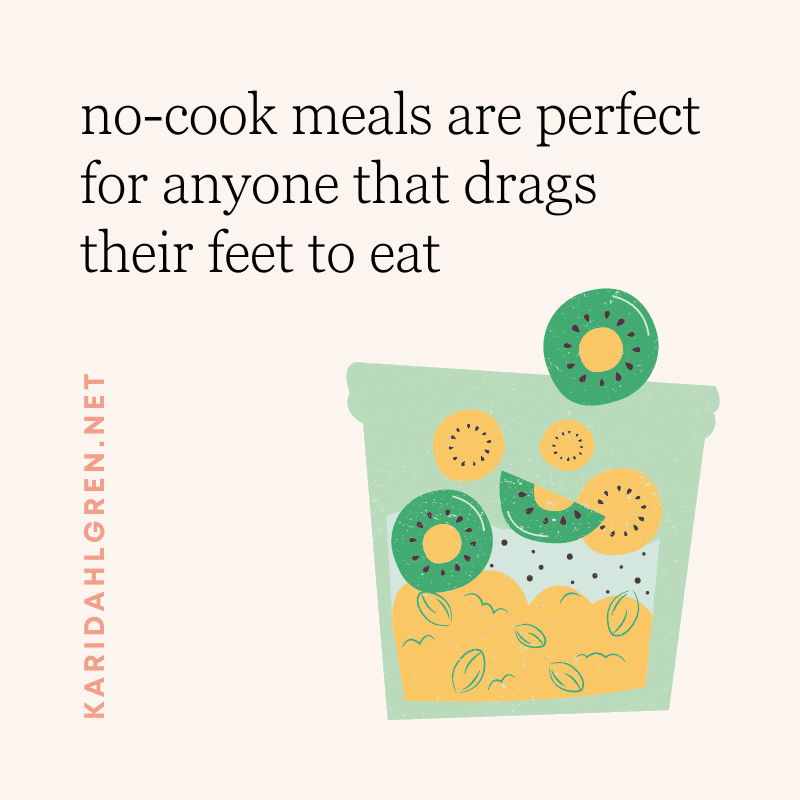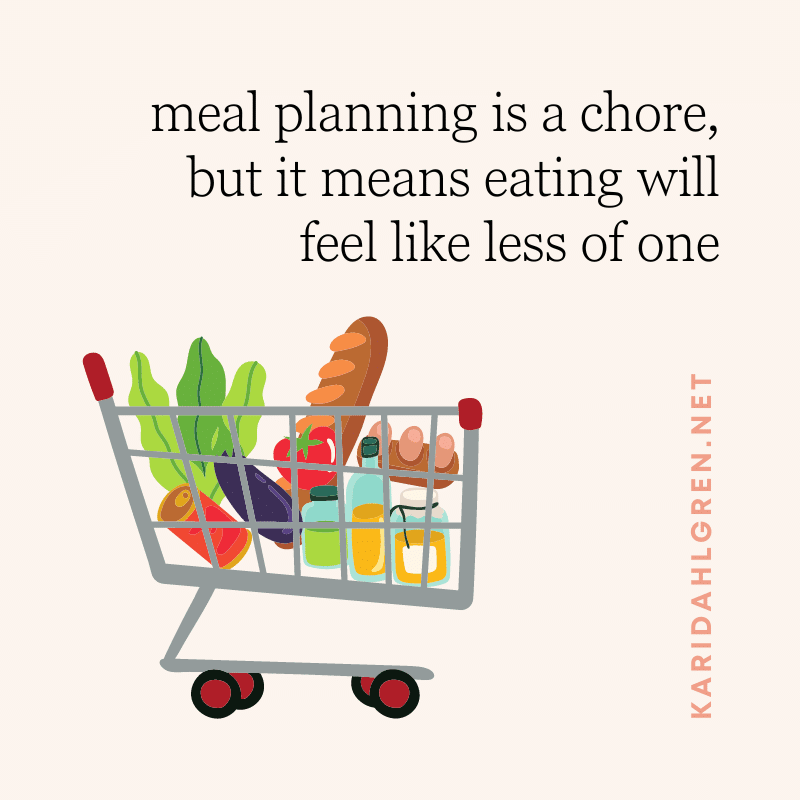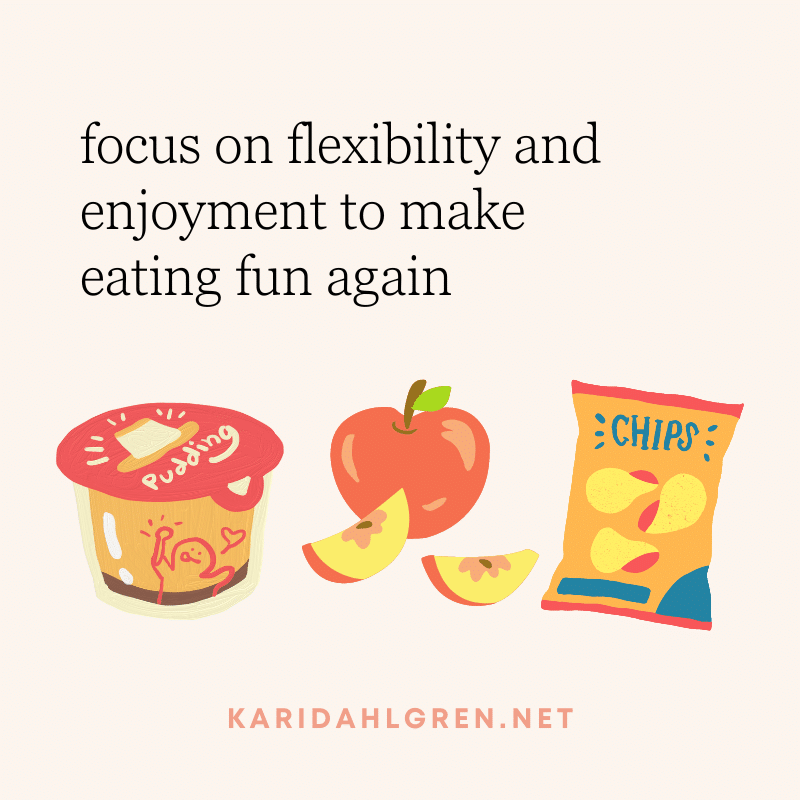
Do you ever drag your feet to get food into your system? Maybe you’re at your work desk, resenting the fact that you need to eat because your stomach is growling, and the reality sets in: eating just feels like a chore.
Cooking also feels like a chore—if not even more so—and it can create a sense of dread around preparing food and getting it into your system. But why? Why does eating feel like a chore, and cooking along with it?
To find out, we need to dig into the deeply personal and varied reasons why preparing and eating food feels like a burden sometimes. This article will explore these reasons and offer tips to bring back the joy of eating.
Why Does Eating Feel Like a Chore?
When eating and cooking feel like a burden, it could stem from a mix of personal and practical challenges. Let’s look closer at what might be turning something essential into something exhausting.
Here are common reasons why eating might feel like a chore sometimes:
1. Opportunity Cost
Short story: When eating takes a backseat to productivity, it’s no wonder it feels like a chore.
In today’s fast-paced world, the go-go-go mentality often prioritizes productivity over self-care, and mealtimes are frequently sacrificed in the name of efficiency. When our schedules are packed with back-to-back tasks, eating can feel like just another chore to check off the list rather than a time to relax and nourish ourselves.
Skipping meals has become increasingly common in recent decades too, and it comes at a cost. Meal-skipping is associated with a lower intake of required nutrients, risk of obesity, and other cardiometabolic disorders, according to a study published in PLoS One.[1]
If you tend to skip meals in order to get a head start on work, try flipping it around to view eating when you’re hungry as getting a head start on your health. Even if eating feels like a chore in the moment, prioritize it as a task that’s worth completing.
Think of the popular lifestyle quote, “If you do not make time for your wellness, you will be forced to make time for your illness.” When faced with the choice between working or eating, remind yourself that while you could be getting ahead with work, you’re actually getting ahead with your well-being by taking the time to eat.
2. Depression or Low Moods
Short story: When low moods take over, even eating can feel like a heavy task.
Depression can significantly affect appetite and the brain’s response to food, potentially causing eating to feel like a chore. A study published in the American Journal of Psychiatry found that individuals with depression experience changes in brain activity related to food, depending on whether their appetite increases or decreases.[3]
Those with increased appetites showed heightened activity in brain regions associated with reward, which could lead to overeating or cravings for comfort foods. On the other hand, those with decreased appetites exhibited reduced activity in the brain’s interoceptive regions, which are responsible for monitoring the body’s internal state. This can make food seem unappealing or even unpleasant, turning eating into a burdensome task rather than an enjoyable experience.
If depression or low moods are making eating feel like a chore, it’s important to consider reaching out to a mental health professional who can provide valuable support. The National Alliance on Mental Illness (NAMI) is also a great resource.
3. Nothing Sounds Good
Short story: When nothing on your plate excites you, eating becomes just another chore to endure.
When you’re hungry but nothing sounds good to eat—a phenomenon I call aimless hunger—eating can quickly feel like a chore. This is especially true if you keep reaching for the same familiar meals. Research shows that eating the same foods repeatedly makes them less enjoyable.[4]
To break out of this rut, try introducing more variety into your diet by experimenting with new recipes, flavors, and ingredients. If cooking feels like a chore, don’t force it. There’s no point in swapping one chore for another. Instead, explore different ready-made meals and snacks from your grocery store until you’re inspired to cook again.
4. Feeling Deprived
Short story: Restricting your favorite foods can suck the pleasure out of eating, making it feel like a chore.
Let’s say that you’re someone who loves and craves carbs, but you’re forcing yourself to eat a low-carb diet. You planned on having a mere chicken breast with broccoli for lunch, and you’re not looking forward to it. Because your meal lacks joy, pleasure, and satisfaction, of course eating feels like a chore!
When we impose strict restrictions on certain foods, we often create a sense of deprivation that can make eating feel like a chore. By constantly telling ourselves that we can’t have the foods we truly enjoy, we strip away the pleasure and satisfaction that should naturally accompany eating.
To overcome the feeling of deprivation, it’s essential to reintroduce enjoyment and flexibility into your eating habits. Not only do you deserve to enjoy your meals, but a scoping review published in PLoS One found that eating pleasure facilitates healthy eating habits, not the other way around.[5]
Stop feeling deprived: As an eating psychology coach, I’m passionate about letting go of the food rules and focusing on the inner work instead. To learn more about my approach, download my free ebook, The Spiritual Seeker’s Guide to Stop Binge Eating.
5. Decision Fatigue & The Moralization of Food
Short story: Too many choices and labeling foods as 'good' or 'bad' can turn mealtime into a mental marathon, making eating feel like a chore.
When it comes to eating, the sheer number of options can sometimes lead to decision fatigue, turning a simple meal into a mental marathon. A study published in Frontiers in Nutrition found that food decisions become even harder when you’re preoccupied with making healthy choices and feel torn between a “healthy” and “tasty” option.[6] If you feel obligated to eat foods you don’t actually enjoy, eating can quickly start to feel like a chore.
This challenge is often compounded by the moralization of food—labeling foods as “good” or “bad” based on factors like calorie content or nutritional value. According to a study published in Frontiers in Psychology, individuals frequently associate food with moral attributes, with high-calorie foods often linked to negative moral judgments.[7]
This is where food neutrality comes into play. By embracing the idea that no food is inherently “good” or “bad,” and letting go of these moral judgments, you can reduce the stress and guilt associated with eating. Viewing all foods as equal allows you to make choices based on what truly satisfies your hunger, making meals more relaxed and enjoyable.
6. Lack of Prepared Foods
Short story: When you're surrounded by ingredients but no ready-to-eat options, eating can quickly turn into a chore.
If your kitchen is stocked with ingredients but nothing ready to eat, getting a meal together can feel like a daunting task. The process of cooking or assembling food, particularly when you’re pressed for time, can make eating feel like just another item on your to-do list rather than a moment to nourish yourself.
This is especially true when you’re hungry and in need of something quick, but all you see are ingredients that require time and effort to turn into a meal. The pressure to prepare food, coupled with the ticking clock, can make the simple act of eating feel overwhelming and burdensome.
To avoid this dilemma, it’s helpful to have a mix of ready-to-eat options and easy-to-prepare meals on hand. If meal prepping isn’t realistic for you, consider combining snacks to create a quick, balanced meal.
7. Life Satisfaction
Short story: When life is fulfilling, eating can feel like a task that interrupts your joy, rather than adding to it.
Finally, when eating feels like a chore, it could actually be a side effect of living a life you truly enjoy. When life is fulfilling, you might not seek food for pleasure, making it feel like a redundant task. For example, an avid woodworker engrossed in a project might find eating a hassle because it interrupts their focus on something they love.
For those who find life so satisfying that eating feels like a chore, focusing on simple, nourishing meals can make the process easier. Opt for quick, balanced options that fuel your body—and there are plenty of tips coming.
What to Do When Eating Feels Like a Chore
Now that we’ve explored why eating can feel like a chore, along with tips to overcome each block, let’s bring those strategies together and add a few more to make meals more enjoyable and less burdensome.
Here are some ways to make eating feel like less of a chore:
Try No-Cook Meals

When cooking feels like too much of a hassle, no-cook meals can be a lifesaver. They’re quick to prepare, require minimal effort, and can still be incredibly nutritious.
- Smoothies: Keep a variety of frozen fruits, spinach, and protein powder on hand to quickly blend a nutrient-packed smoothie. Add nuts, seeds, or oats for extra fiber and staying power.
- Salads: Prep your salad greens and veggies ahead of time, and store them in airtight containers. Add pre-cooked proteins like rotisserie chicken, canned beans, or tofu for an easy, balanced meal.
- Wraps and sandwiches: Use whole-grain tortillas or bread and fill them with your favorite deli meats, cheeses, veggies, and spreads for a quick, no-cook meal.
- No-cook breakfasts: If you struggle with making time for breakfast, try making your breakfast the night before. Make overnight oats by soaking oats in milk or yogurt with your favorite toppings overnight, or try chia pudding for a quick, grab-and-go breakfast.
- Pre-packaged options: Look for single-serving packs of nuts, hummus with veggies, or whole-grain crackers with cheese to keep on hand for quick, nutritious snacks or light meals.
Plan and Shop Savvy

Light planning and shopping can make a huge difference in how easy and enjoyable your meals are. While these tasks are indeed chores, the benefit of tackling them is that they free you up to enjoy your meals without the added stress later. By treating chores as chores, you can prevent eating from feeling like one.
- Use a grocery delivery service: If you dread grocery shopping and feel like that’s a chore too, consider using a grocery delivery service if you can afford one. This ensures you have healthy foods on hand without the hassle of going to the store.
- Shop with a list: Plan your meals for the week and create a shopping list to ensure you have everything you need. When you have enjoyable food at the ready, eating can feel less like a chore.
- Opt for frozen options: Stock your freezer with frozen fruits, vegetables, and proteins. They’re just as nutritious as fresh and can be easily incorporated into meals.
Master Your Mindset

Making food feel like less of a chore often starts with shifting your mindset. By adopting a healthier, more balanced approach to eating, you can transform your meals into something you look forward to rather than something to check off your to-do list.
- Set a routine: Establish regular meal times to create a consistent eating pattern. Consistency can help reduce the mental load of deciding when and what to eat, making the process feel more natural and less like an obligation.
- Incorporate enjoyment: Make a conscious effort to include foods that you genuinely enjoy in your meals. When you eat foods you love, mealtimes become something to anticipate, adding pleasure to your day rather than feeling like just another task.
- Allow flexibility: Flexibility in your diet helps prevent feelings of deprivation, ensuring that eating remains a source of comfort and joy rather than stress.
- Make eating a priority: Treat mealtime with the same importance as any other task in your day. Schedule time for meals, even if you’re busy, to ensure you’re nourishing your body and taking a necessary break to refuel both physically and mentally.
Also, keep in mind that not every meal can be a perfect, satisfying experience. Sometimes we don’t have foods that we like on hand or life throws too many curveballs for one day. The goal isn’t to make every single meal perfect. Rather, the goal is to slowly break away from feeling like eating is a chore and treat it as a sought-after chance for nourishment and self-care.
Reclaim the Joy of Eating
If you feel like eating is a chore, I’m curious to know which reason resonated with you the most. Do you feel obligated to eat according to a specific set of “rules” about what’s healthy and what isn’t? Did you relate to feeling an internal tug-of-war between work and food? Leave me a comment below!
Regardless of the reason why eating feels like a chore, I hope that you can find some reprieve in no-cook meals, embracing food neutrality, and transitioning your mindset around eating from obligation to self-care. For more eating psychology tips, check out my free resources below:



